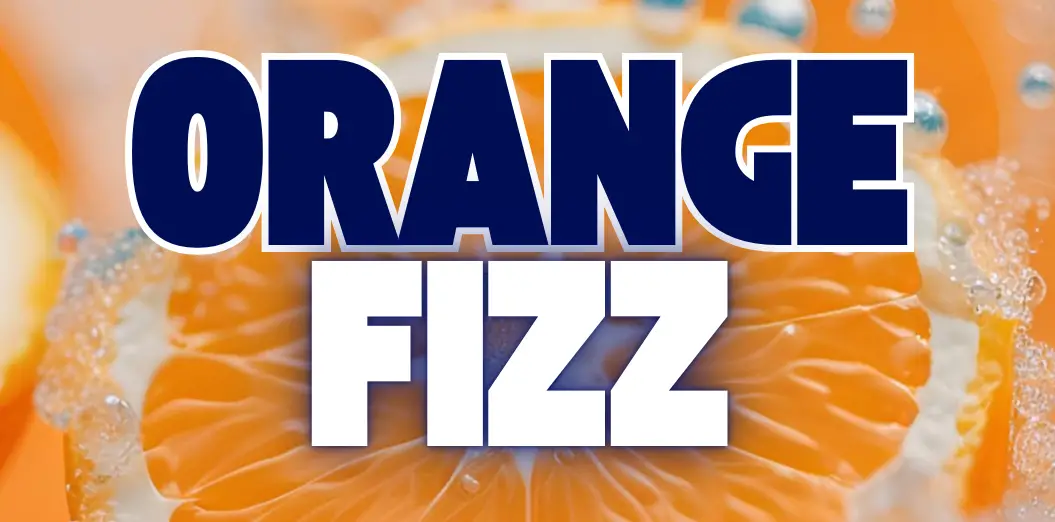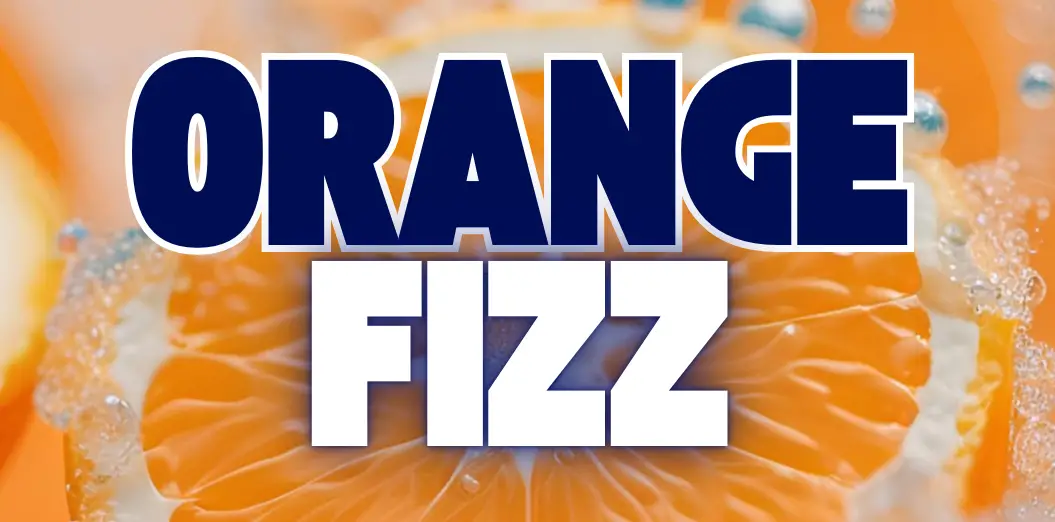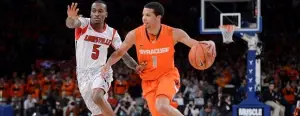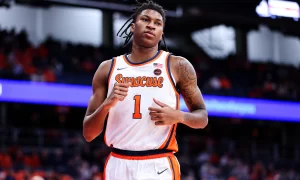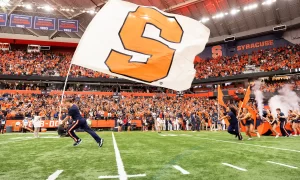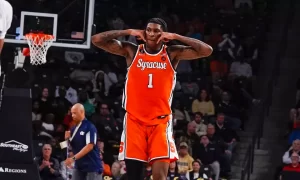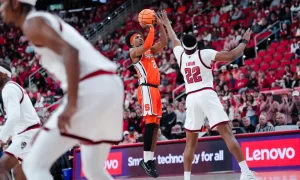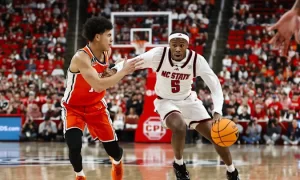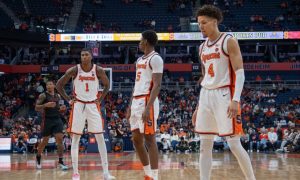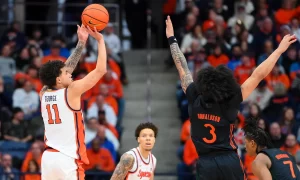It was an absolute no-brainer for Michael Carter-Williams to enter the 2013 NBA Draft. Or was it? Under the current system and conventional wisdom the answer is definitively yes. Carter-Williams, despite being a sophomore, is already 21 which is old for his draft class. This draft isn‚Äôt just weak, it has the potential to be the worst of the modern era. It‚Äôs so bad a possible #1 overall pick is injured. This year Nerlens Noel follows in ’00 Kenyon Martin’s footsteps. He was followed by such gems as Stromile Swift, Darius Miles and Marcus Fizer.
MCW will be a lottery pick and might even squeeze into the top 10 with solid workouts and the right draft order. With that projection, the prevailing thought is “go and get your money because you probably won’t be drafted as high next year.” It sounds simple and really is in terms of short-term business. Because of the unpredictable nature of sports, this has become standard wisdom. Should it be?
This isn’t going to be about getting a degree, although there’s unquestionable value in that. This is about basketball. There’s no doubt Carter-Williams  - and almost everyone else in this draft Рcould use more college basketball before heading to the NBA. Noel has an extremely limited offensive game. Ben McLemore needs to be more aggressive and develop an off-the-dribble game. Marcus Smart’s jump shot is erratic, and he’s very unrefined as a point guard. Those are your top 3 picks.
If those players return to school, are they better players next year? Unquestionably, but for some reason that makes them less coveted prospects. The NBA loves potential and part of that is the unknown. The thought that development stops when a player leaves for the NBA is silly, but you do have to play to develop. Noel, Smart and McLemore will likely play solid rotation minutes next year…¬†but a guy like Carter-Williams is probably looking at a role like Kendall Marshall has with the Suns. He plays less than 15 minutes per game, spending most of his time on the pine, carrying bags and getting donuts for the vets.
If Carter-Williams returned to Syracuse and played 30+ minutes per game, got coaching from a hall of famer, and became a better basketball player, it would surely help him down the road. It could hurt him on his rookie contract, based solely on what pick you are in the draft. But what about all the ensuing contracts that will be based on NBA production?
Think of Shane Battier. He‚Äôs been in the league over a decade now doing seemingly the same things he did at Duke. Battier was the rare top 5 pick as a senior, but he was NBA ready as a rookie and has stayed in the rotation for a lengthy career. His teams have always won, and was highly coveted by Miami on the open market. The other end of the spectrum is Sebastian Telfair, who jumped to the pros out of high school. He will never be in a rotation on a winning team and hasn‚Äôt played more than 20 mpg for any of his 5 teams the last 4 seasons. Who‚Äôs had a more lucrative career? Battier has brought in over $50M in his career since ’01, including $7.3 two years ago in Memphis. Telfair has earned $16M since ’04, topping out at $2.7M last year.
It’s happened to a ton of Syracuse players. Dion Waiters stayed an extra year¬†and it absolutely helped him. Jonny Flynn and Wes Johnson chose to leave early, and it’s seemed to hurt them in the long run.
There are also plenty of guys who have left early (or gone straight to the NBA) and done well. LeBron James is only the best player on the planet. Kobe used to be. But when Cody Zeller might “get exposed” by going back to school that’s a problem in our thinking. Maryland’s Alex Len is slotted one spot higher than Zeller in Chad Ford‚Äôs latest mock draft, despite unquestionably not being ready to play in the NBA. If Len declares now but Zeller has a solid NBA career down the road, and earns a bigger second contract than Len who made the right decision?
The nature of sports says we shouldn‚Äôt ever look past the first contract, but if we do we‚Äôd see the shame in the current setup. What‚Äôs best now isn‚Äôt really always what‚Äôs best later. Where a player is drafted matters, but it shouldn‚Äôt be the only thing. What should matter is what‚Äôs truly best for the player’s career, which includes everything from short term financial gain, long term success and a degree.
For a guy like McLemore, there‚Äôs zero question he should go. His mom struggles to keep the power and heat on. He needs to take care of his family right now. Carter-Williams might very well be in that same boat. There‚Äôs no question his family could use some immediate money after their house caught fire. For those two cases, and many others, the answer might be an overwhelming ‚Äúgo.‚Äù But the next time a player’s decision to leave early is called a “no-brainer,” it’s time we started using our brains.
Posted: Craig Hoffman
